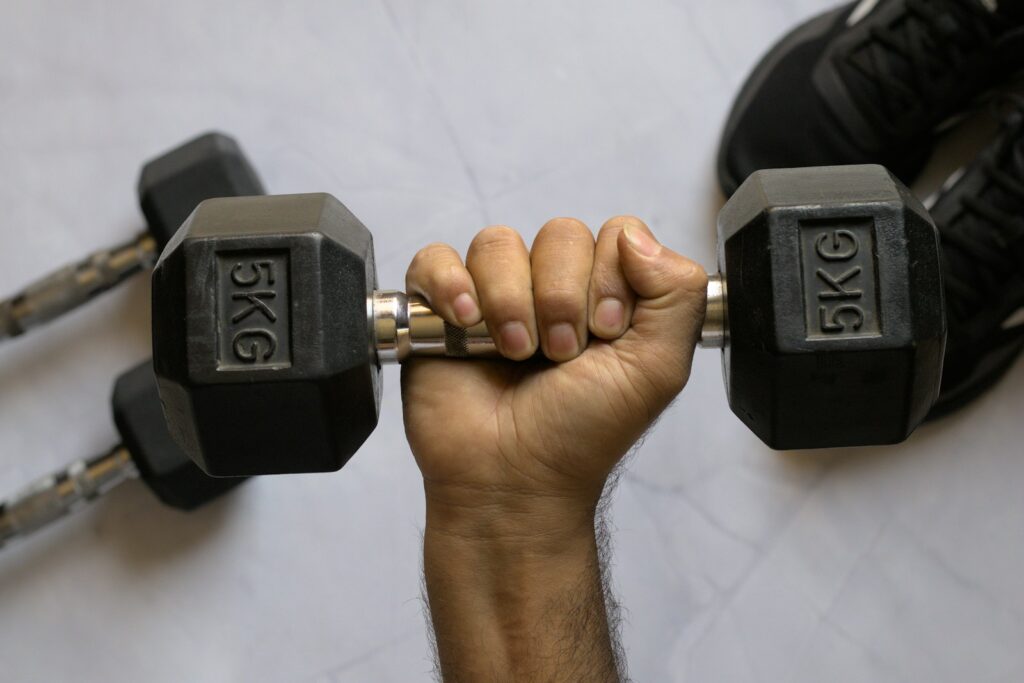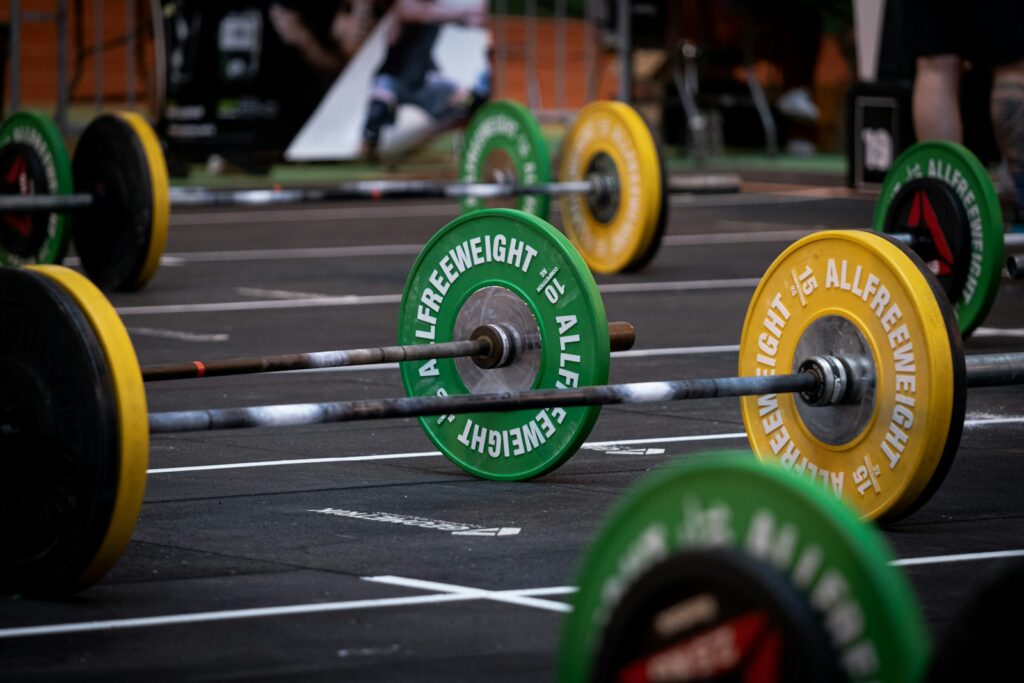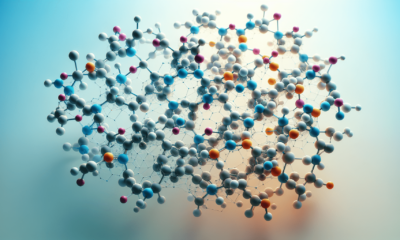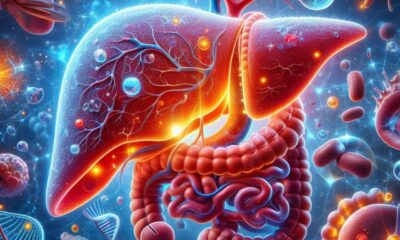Health
The Role of Muscle Mass and Bodybuilding in Aging
Learn about the importance of maintaining muscle mass and bodybuilding as you age. Discover how muscle loss impacts physical function, metabolism, disease prevention, and cognitive function. Find strategies for preserving muscle mass and improving overall well-being.
As you age, the importance of maintaining muscle mass becomes increasingly vital for your overall health and well-being. This article delves into the role that muscle mass plays in the aging process and highlights the significance of preserving and strengthening your muscles as you grow older. With advancing age, muscle loss is a common occurrence, and this can lead to a multitude of health issues. Whether you are in your golden years or supporting an aging loved one, this article provides valuable insights into the benefits of maintaining muscle mass in older adults.
The Role of Muscle Mass and Bodybuilding in Aging
As you age, maintaining muscle mass becomes increasingly important for your overall health and well-being. Muscle mass plays a vital role in various aspects of your life, ranging from physical function and metabolism to disease prevention and cognitive function. It acts as a strong foundation for your body, supporting movement, strength, and stability. Without adequate muscle mass, older adults may experience a decline in physical abilities and be more susceptible to various health issues. Therefore, understanding and prioritizing muscle mass preservation and bodybuilding is crucial for a healthier and more active aging process.

Importance of maintaining muscle mass and occasional bodybuilding in older adults
Preserving muscle mass in older adults is essential for several reasons. Firstly, muscle mass and bodybuilding directly contributes to physical function, enabling individuals to perform daily activities with ease. Strong muscles support mobility, balance, and posture, reducing the risk of falls and related injuries. Maintaining muscle mass also plays a significant role in preserving independence and reducing reliance on others for basic tasks. This independence not only promotes a higher quality of life but also enhances self-esteem and mental well-being.
Secondly, muscle mass plays a key role in metabolism. Muscle tissue is metabolically active, meaning it requires more energy than fat tissue. Therefore, individuals with greater muscle mass have a higher metabolic rate, allowing them to burn more calories at rest. This increased metabolic rate can aid in weight management and prevent the accumulation of excess body fat, which is particularly important in preventing age-related obesity and associated health conditions like diabetes and cardiovascular diseases.
Factors contributing to muscle loss in aging
Unfortunately, muscle loss, also known as sarcopenia, is a common age-related phenomenon. Several factors contribute to the decline in muscle mass observed in older adults. One primary factor is a decrease in physical activity levels. As people age, they tend to be less physically active, leading to muscle disuse and atrophy. Hormonal changes, such as a decline in testosterone and growth hormone levels, also play a role in the loss of muscle mass. Poor nutrition, specifically inadequate protein intake, can further exacerbate muscle loss, as proteins are the building blocks of muscle tissue. Lastly, chronic inflammation, oxidative stress, and certain medications can also contribute to the deterioration of muscle mass in aging individuals.
Effects of muscle loss on physical function
The loss of muscle mass due to aging can have significant effects on physical function. Decreased muscle mass leads to a decline in overall strength, power, and endurance, making everyday activities more challenging. Simple tasks like climbing stairs or lifting groceries can become difficult, limiting independence and overall quality of life. Additionally, muscle loss can impair balance and coordination, increasing the risk of falls and fractures. This decline in physical function can also contribute to an increased risk of chronic conditions, mobility limitations, and disability in older adults.
Impact of muscle loss on metabolism
Muscle loss negatively impacts metabolism, leading to various health consequences. As older adults lose muscle mass, their metabolic rate decreases, resulting in a slower resting metabolism. This decrease in basal metabolic rate can promote weight gain, as fewer calories are burned at rest. The accumulation of excess body fat can contribute to obesity and increase the risk of diabetes, cardiovascular diseases, and metabolic disorders. Furthermore, reduced muscle mass affects the body’s ability to regulate blood sugar levels, potentially leading to insulin resistance and type 2 diabetes.

Role of muscle mass and bodybuilding in disease prevention
Maintaining muscle mass in older adults is crucial for preventing various diseases and health conditions. Research suggests that maintaining muscle mass can lower the risk of chronic diseases such as diabetes, cardiovascular diseases, and osteoporosis. Strong muscles support cardiovascular health, aiding in blood circulation and reducing the risk of heart diseases. Adequate muscle mass also improves insulin sensitivity, reducing the risk of developing type 2 diabetes. Moreover, muscle mass contributes to bone health, preventing the onset of osteoporosis and reducing the risk of fractures.
Muscle mass and cognitive function
Recent studies have highlighted the connection between muscle mass and cognitive function in older adults. Research suggests that individuals with greater muscle mass have better cognitive abilities, including memory, executive functions, and overall cognitive performance. The exact mechanisms underlying this relationship are not yet fully understood, but it is believed that factors such as hormones, inflammation, and insulin sensitivity may play a role. Preserving muscle mass through regular exercise and a balanced diet may help protect cognitive function and reduce the risk of cognitive decline and dementia.

Relationship between muscle mass and bone health
Muscle mass and bone health are intricately linked, with one significantly impacting the other. The mechanical stress placed on bones during muscle contractions stimulates the production of bone tissue, resulting in increased bone density and strength. Therefore, maintaining muscle mass and occasional bodybuilding is crucial for preserving bone health and preventing age-related bone conditions like osteoporosis. Conversely, inadequate muscle mass and strength can lead to decreased bone density, making older adults more susceptible to fractures and other bone-related injuries.
Strategies for preserving muscle mass in aging
To preserve muscle mass as you age, it is important to adopt various strategies that prioritize physical activity and adequate nutrition. Regular exercise, particularly resistance training, is essential for building and maintaining muscle mass. Engaging in activities such as weightlifting, resistance band exercises, and bodyweight movements can effectively stimulate muscle growth. It is also crucial to incorporate cardiovascular exercises, such as walking or swimming, to promote overall fitness and cardiovascular health.
Exercise and resistance training for muscle preservation
Resistance training, specifically, is vital for preserving and building muscle mass. This type of exercise involves using external resistance, such as weights or resistance bands, to create tension on the muscles. Resistance training helps stimulate muscle protein synthesis, which is necessary for muscle growth and maintenance. Older adults should aim to engage in resistance training at least two to three times a week, targeting all major muscle groups in the body. It is advisable to consult a fitness professional or healthcare provider for a personalized exercise program based on individual capabilities and goals.
Nutrition and protein intake for muscle maintenance
In addition to exercise, proper nutrition is crucial for muscle maintenance in aging individuals. Adequate protein intake is essential for muscle synthesis and repair. Older adults should ensure they consume enough high-quality protein sources, such as lean meats, fish, poultry, dairy products, legumes, and tofu, to meet their daily protein requirements. It is generally recommended that older adults consume between 1.2 to 2 grams of protein per kilogram of body weight per day. Ensuring a balanced diet with a variety of nutrient-dense foods can also provide other essential nutrients that support muscle health, such as vitamins D and C and minerals like calcium and magnesium.
Benefits of maintaining muscle mass in aging
Maintaining muscle mass in aging adults offers numerous benefits beyond physical function. It promotes a higher quality of life, enhances independence, and reduces the risk of falls and related injuries. Adequate muscle mass supports a healthy metabolism, aiding in weight management and preventing obesity and associated health conditions. Muscle preservation also contributes to disease prevention, reducing the risk of chronic diseases like diabetes, cardiovascular diseases, and osteoporosis. Furthermore, research suggests that maintaining muscle mass positively impacts cognitive function, protecting against cognitive decline and dementia. Finally, strong muscles support bone health, preventing fractures and improving overall bone density.
In conclusion, maintaining muscle mass plays a vital role in the aging process. Preserving muscle mass is essential for maintaining physical function, metabolic health, disease prevention, cognitive abilities, and bone health in older adults. By adopting strategies such as regular exercise, resistance training, and proper nutrition, individuals can ensure the preservation of muscle mass and enjoy the numerous benefits it offers. Prioritizing muscle maintenance can provide a healthier and more active aging experience, contributing to overall well-being and quality of life.
















